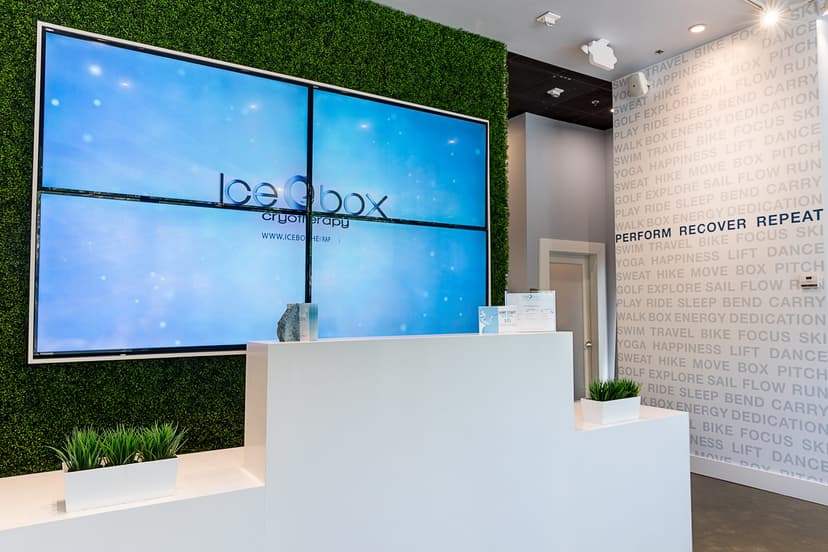Aging is a natural part of life, but how we age can make a big difference in our quality of life. By adopting healthy habits and making smart choices, we can enjoy our later years with vitality and joy. This guide will explore effective strategies for aging well, from staying active to keeping our minds sharp.
Key Takeaways
- Regular physical activity is crucial for maintaining health and mobility as we age.
- Eating a balanced diet helps support overall health and can prevent many age-related issues.
- Mental well-being is just as important as physical health; activities that promote mental health can improve quality of life.
- Staying connected with friends and family can help prevent feelings of loneliness and isolation.
- Engaging in hobbies and lifelong learning can provide a sense of purpose and keep the mind active.
Keys to Healthy Aging
Importance of Physical Activity
Staying active is crucial as we age. Regular exercise helps maintain mobility, strength, and balance. It can be as simple as walking, swimming, or even gardening. Aim for at least 30 minutes of moderate activity most days of the week.
Balanced Nutrition
Eating a well-balanced diet is essential for good health. Focus on consuming a variety of fruits, vegetables, lean proteins, and whole grains. Avoid processed foods and limit sugar and salt intake. Staying hydrated is also important, so drink plenty of water throughout the day.
Mental Well-being
Mental health is just as important as physical health. Engage in activities that stimulate your mind, such as reading, puzzles, or learning a new skill. Social interactions and maintaining relationships can also boost your mood and mental sharpness.
Taking care of your body and mind can lead to a more fulfilling and healthier life as you age.
Coping with Change
Embracing New Experiences
As you age, it's natural to feel the losses you experience. However, by balancing your sense of loss with positive factors, you can stay healthy and continue to reinvent yourself. Accept the things you can’t change and focus on what you can control, like how you react to problems. Face your limitations with dignity and humor.
Managing Stress
Aging and the changes it brings can cause stress, which may lead to anxiety and depression. It's important to find healthy ways to manage stress. Whether it's exercise, journaling, or seeking professional counseling, knowing how to relieve stress is crucial. Focus on the good and understand your stress triggers to mitigate stress effectively.
Seeking Support
Building resilience and finding healthy ways to cope with challenges will help you make the most of the good times and keep your perspective when times are tough. Stay connected to your community and loved ones, and don't hesitate to seek support when needed. This will help you navigate the changes that come with aging.
Finding Meaning and Joy
Exploring new and meaningful hobbies can help you keep a sense of purpose and stay engaged throughout your life. People who take part in hobbies and social activities tend to be happier, experience less depression, and live longer. Whether it's painting, gardening, or learning a musical instrument, hobbies can bring joy and fulfillment.
Getting involved in your community by volunteering for a cause that matters to you can add meaning and purpose to your life. Community work not only enriches your life but also allows you to use and share the skills you developed during your career, without the stress of regular employment. Volunteering can be a rewarding way to stay active and connected.
Spiritual growth can provide a deep sense of meaning and joy. This can be achieved through various practices such as meditation, prayer, or spending time in nature. Spiritual activities can help you find peace, improve your emotional well-being, and offer a sense of connection to something greater than yourself.
Taking time to nourish your spirit is never wasted. Whether through hobbies, volunteering, or spiritual growth, finding activities that bring you joy is essential for healthy aging.
Staying Connected
Maintaining Relationships
As we age, keeping our support network intact can be challenging. Regularly connecting with friends and family is crucial. Spend time with people who make you happy, whether it's a neighbor you exercise with, an old friend you have lunch with, or your grandkids you play with. Even if you're far away, frequent calls or emails can help keep these relationships strong.
Joining Community Groups
Being part of community groups can provide a sense of belonging and purpose. Look for local clubs, hobby groups, or volunteer opportunities that interest you. These activities not only help you meet new people but also keep your mind active and engaged.
Using Technology to Stay in Touch
Technology can be a great tool to maintain connections. Use video calls, social media, or messaging apps to stay in touch with loved ones. Platforms like Skype or FaceTime make it easy to have face-to-face conversations, even if you're miles apart.
Staying connected with others can boost your mood and keep your mind sharp. It's important to make an effort to maintain and build relationships, no matter your age.
Boosting Vitality Through Activity
Types of Physical Activities
Engaging in various physical activities can significantly enhance your vitality. Exercise helps maintain strength and agility, improves sleep, and boosts mental health. Some great options include walking, gardening, stretching, and strength training. These activities not only keep you fit but also add life to your years.
Creating a Routine
Creating a consistent exercise routine is key to reaping the benefits of physical activity. Start with small, manageable goals and gradually increase the intensity and duration. Here are some steps to help you get started:
- Choose activities you enjoy.
- Set realistic goals.
- Schedule your workouts.
- Track your progress.
- Stay motivated by mixing up your routine.
Benefits of Regular Exercise
Regular exercise offers numerous benefits that can improve your quality of life. It helps prevent memory loss, cognitive decline, and dementia. Additionally, it can reduce chronic pain and increase overall vitality. By staying active, you can enjoy a healthier, more fulfilling life.
Staying active is not just about adding years to your life, but adding life to your years. Embrace physical activity to boost your vitality and well-being.
Keeping Your Mind Sharp
Brain Exercises
Keeping your brain active is just as important as keeping your body fit. Engaging in activities like puzzles, reading, and learning new skills can help delay memory decline. Try to mix up your daily habits, like taking a different route to the store or using your non-dominant hand for tasks. These small changes can create new pathways in your brain.
Lifelong Learning
Never stop learning, no matter your age. Whether it's picking up a new hobby, taking a class, or simply reading about a new topic, continuous learning keeps your mind engaged and sharp. Remember, you're never too old to learn something new.
Healthy Sleep Habits
Good sleep is crucial for brain health. Aim for 7-9 hours of sleep each night to help your brain process and store memories. Create a bedtime routine to improve your sleep quality, such as avoiding screens before bed and keeping your sleep environment comfortable.
Keeping your mind sharp involves a mix of mental exercises, continuous learning, and healthy sleep habits. These practices can help maintain cognitive function and improve your overall well-being.
Preventing Common Aging Issues
Fall Prevention
Falls are a major concern for older adults. Taking steps to prevent falls can greatly reduce the risk of injury. Here are some tips to help prevent falls:
- Keep your home well-lit and free of clutter.
- Use handrails on stairs and in bathrooms.
- Wear non-slip shoes.
- Have your vision checked regularly.
Managing Chronic Conditions
Chronic conditions like diabetes, heart disease, and arthritis can be managed with proper care. It's important to:
- Follow your doctor's advice and take medications as prescribed.
- Maintain a healthy diet and exercise regularly.
- Monitor your condition and report any changes to your healthcare provider.
Healthy Lifestyle Choices
Making healthy lifestyle choices can prevent many common aging issues. Consider the following:
- Eat a balanced diet rich in fruits, vegetables, and whole grains.
- Stay physically active with activities you enjoy.
- Avoid smoking and limit alcohol consumption.
- Get regular check-ups and screenings.
Staying proactive about your health can help you age gracefully and maintain your independence.
Conclusion
Aging well is not just about adding years to your life, but adding life to your years. By staying active, eating well, and keeping your mind sharp, you can enjoy a healthier and more fulfilling life as you age. It's also important to stay connected with others and find joy in everyday moments. Remember, it's never too late to make positive changes. Start today, and embrace the journey of healthy aging with optimism and enthusiasm.
Frequently Asked Questions
What are some simple exercises for older adults?
Walking, gardening, and light stretching are great for staying active. Even small activities like taking the stairs can make a big difference.
How can I improve my diet as I age?
Eating more fruits, vegetables, and whole grains can help. Try to limit processed foods and sugary drinks.
Why is staying social important for healthy aging?
Being around friends and family can boost your mood and mental health. It helps you feel connected and supported.
What can I do to keep my mind sharp?
Puzzles, reading, and learning new things can help keep your brain active. Even simple games can be beneficial.
How can I manage stress as I get older?
Deep breathing, meditation, and talking to friends can help. It's also important to stay active and eat well.
What should I do if I feel lonely?
Joining community groups or clubs can help you meet new people. Volunteering is another great way to stay connected.
























